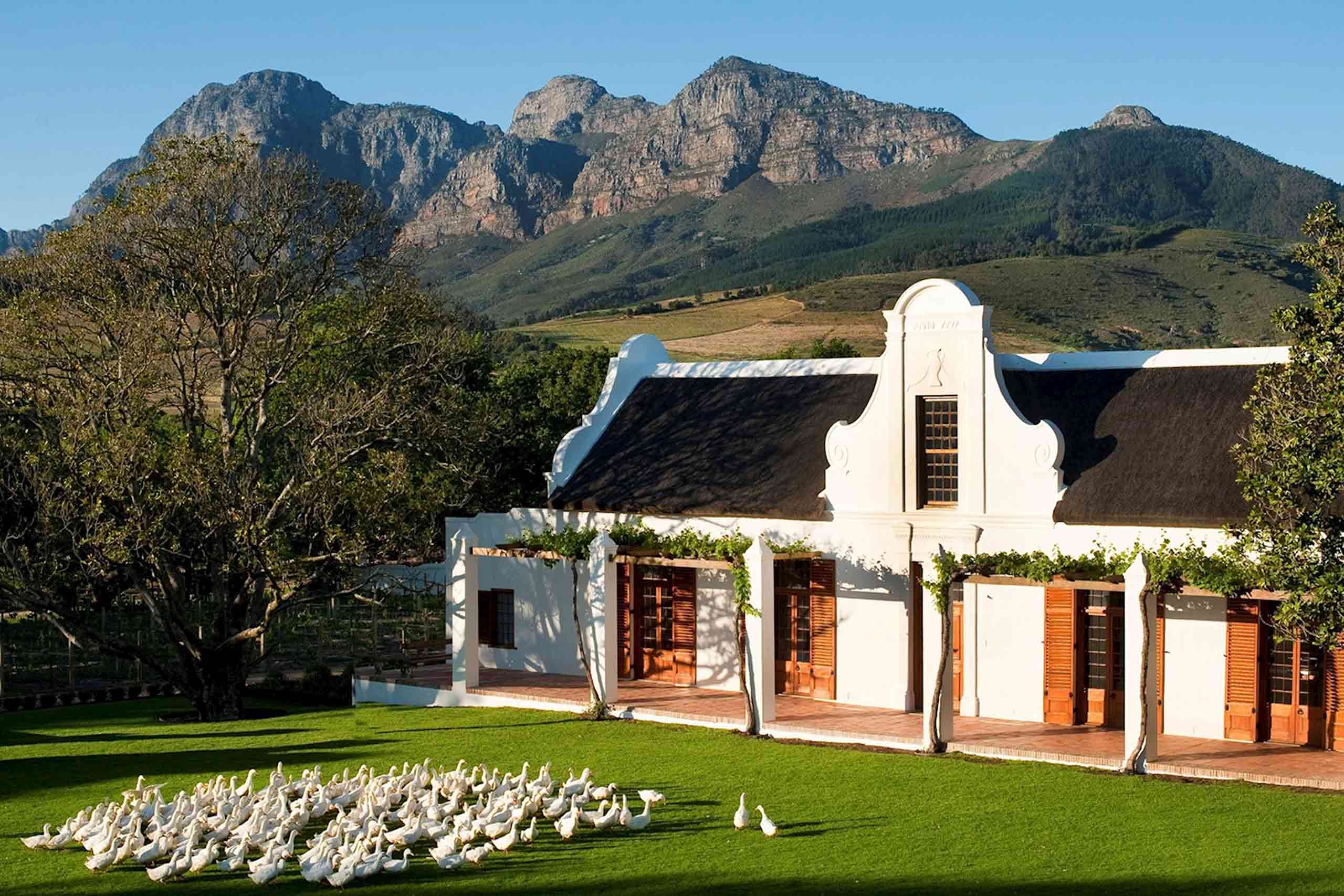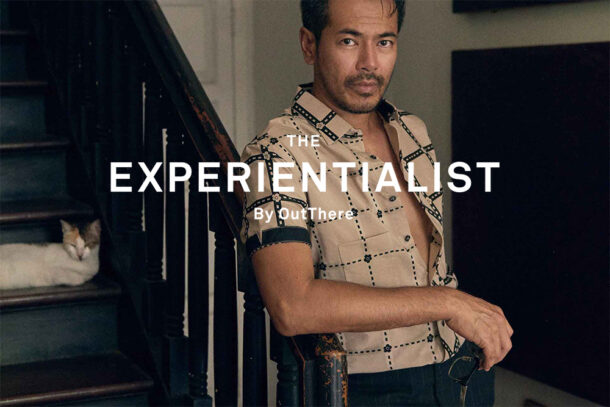There is a moment – perhaps while walking barefoot through the manicured rows of the garden, or catching the scent of orange blossom when golf-carting towards the mountain, or soaking in a contemporary tin bath tub scented with fynbos oil, or staring out over vines that shimmy like silk in the breeze – when one realises that Babylonstoren is not an ordinary place. It’s hard to call it a hotel, nor is it a farm in the usual muddy-boots sense. It is, quite plainly, a kind of living love letter to the good life (or, as South Africans might say, “lekker living”), scribbled in organic fruit ink, penned under the shadow of Simonsberg mountain, just a scenic wine-swig away from Cape Town.
In the bosom of the Drakenstein Valley in the Cape Winelands of South Africa, Babylonstoren is at once biblical and briskly contemporary. The name alone, drawn from the Tower of Babel and a reference to its structured garden that mimics the ordered abundance of Eden, sets the tone.
The 600-acre estate was brought to life by former Elle Decoration editor and South African style savant Karen Roos. A woman of impeccable taste and inexhaustible energy, Roos took what was a rather sleepy 17th-century Cape Dutch farm and turned it into something truly extraordinary: an eight-acre, grid-patterned garden fantasyland, modelled loosely on the mythic gardens of the Company’s Garden in Cape Town, but dialled up to the horticultural heavens. Having access to the coffers of her partner, South African billionaire Koos Bekker, helped, of course, but the place already had a sense of quiet magic that only age can conjure, a storied history dating back to 1692.
And Roos’ philosophy? Simple: everything should have a purpose and be beautiful. Here, produce from the garden finds its way onto your plate mere hours after being plucked. Herbs from the greenhouse get muddled into your cocktail or a spa product. Even the walls are made from old farm stone, giving you the sense that everything, absolutely everything, belongs.
There’s an honesty to Babylonstoren’s aesthetic, all whitewashed walls, gables like ox horns and polished concrete floors, that manages to feel both rustic and refined, minimalism with soul, but most certainly luxurious. We’re coining it ‘farm-to-fabulous’!
The tucked-away, private Fynbos Cottages compound, a golf cart away from the centre of the Babylonstoren estate (and its Farmhouse and Garden Cottage accommodation) at the foot of the mountain and clustered around a lake – sounds idyllic, doesn’t it? – was where we were fortunate to shack up for a few days. But for the full OutThere fantasy, we checked into the Fynbos Family House, a beautiful five-bedroom villa, the sort of house that made us rethink our entire life trajectory. Why are we not billionaires? Why don’t we live in the Winelands? Could we start a lavender oil business? Who needs London anyway?
With soaring glass doors that slide open to let the air and sun in like welcome houseguests who bring with them incredible views of the valley, all surrounding a private pool that invites contemplative dips, the house feels like a chic mid-century-modern architect’s home, reimagined by a Scandinavian farmhand. Fresh farm produce is delicately laid out on the kitchen table, essential oils fill the air… all ingredients in the ultimate antidote to urban overwhelm. There are no sirens, no inbox pings, only the occasional rustle of birdlife, or the satisfying clink of a chilled peachy Viognier, or a tropical Chenin Blanc being poured, yet again.
Let’s talk wine. Because you will. And often. Babylonstoren is, after all, a working wine farm, and the cellar is no mere side attraction. Their range – crisp whites, robust reds with names like Nebukadnesar and one particularly rascally Mourvèdre Rosé – is produced with the rigour and reverence usually reserved for haute couture. Each bottle was an eloquent expression of the terroir that surrounded us. Daily wine tastings in the gravity-fed cellar are part ritual, part bacchanal, with sommeliers who are both scholarly and friendly.
And dining at Babylonstoren is, as you can imagine, a feast that charts the journey of food from soil to plate in the most deliciously immediate way possible. Here, the phrase ‘farm to fork’ isn’t a marketing gimmick, but a literal description of the distance your lunch has travelled, often a matter of metres, not miles. You don’t just taste the food; you taste the sunshine, the soil, the rain, the intention. And quite possibly, a measured spoonful of magic.
At the heart of the culinary offering is Babel, the farm’s signature restaurant housed in a converted cowshed. The interiors are stripped-back, light-drenched and elegantly simple, letting the vibrant colours of the food speak for themselves. Menus here change with the seasons, sometimes even daily, based entirely on what’s ripe and ready in the garden. We grazed on artfully arranged platters of rainbow beets, sun-warmed heirloom tomatoes, goats’ cheese so fresh it still bleats, edible flowers and aromatic herbs. Food that’s just on the right side of smug, but never ever fussy.
Our favourite meal of the day was also served here – a sumptuous breakfast buffet and abundant showcase of the farm’s growing prowess, beautifully presented and artfully assembled over a humongous wooden farm table every morning.
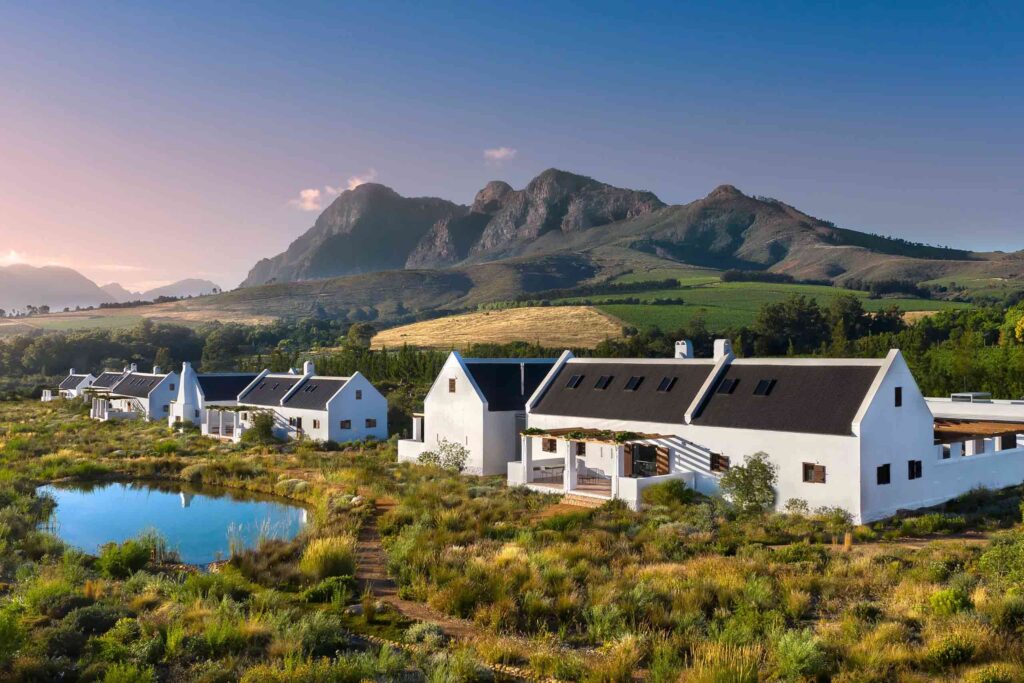
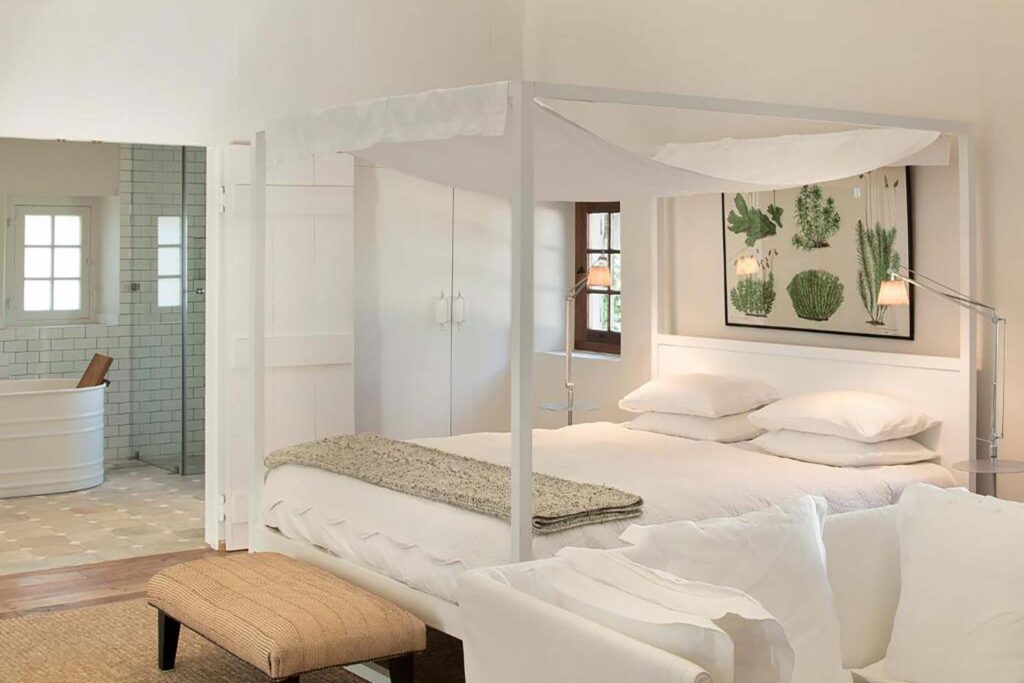
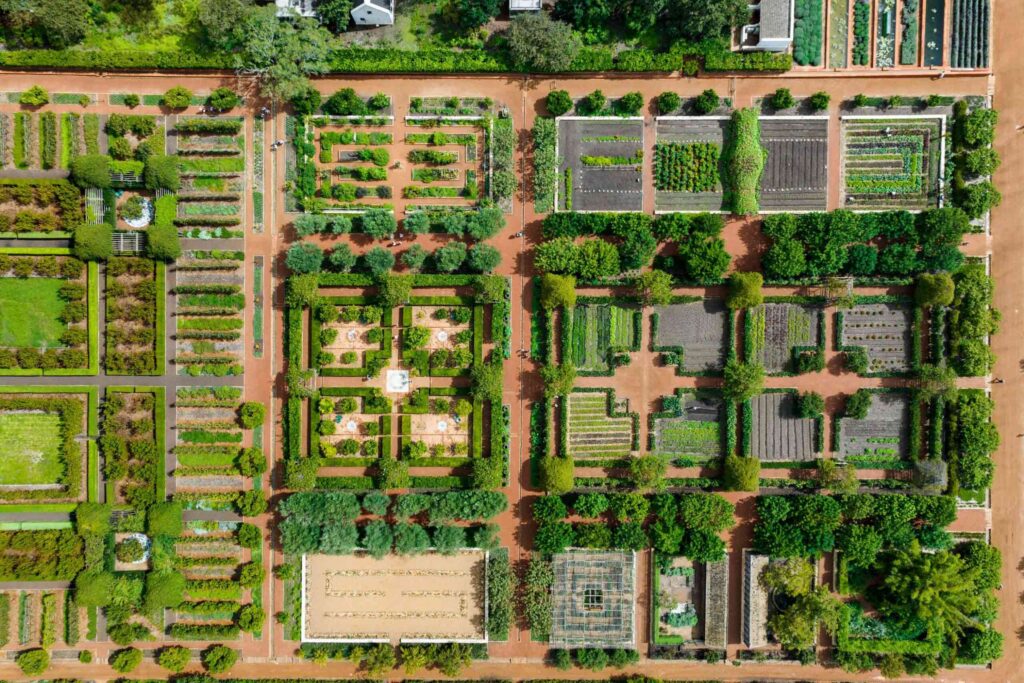
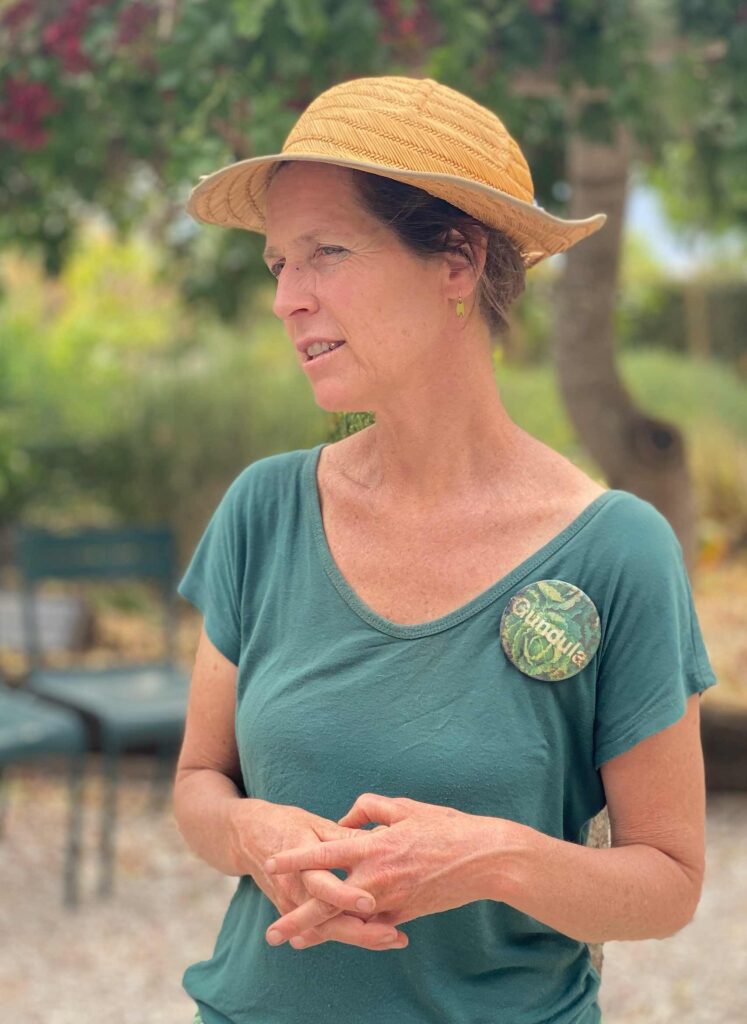

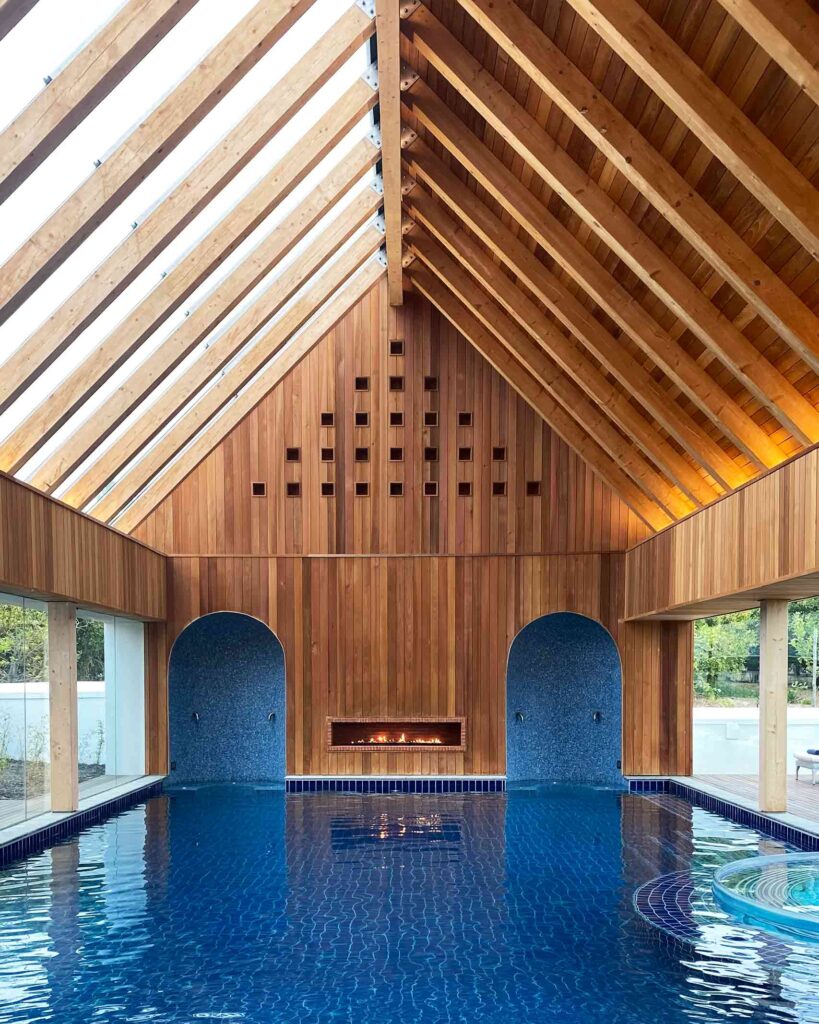
| Perfect for | Fly into | Right on time |
| The Insider | CPT | GMT +2 |
| While you’re Out There |
| In the storied wine valley of Franschhoek, a region long dominated by colonial legacies and white-owned estates, a new generation of Black winemakers is quietly, yet powerfully, reshaping the narrative. These trailblazers are not only producing award-winning wines that stand shoulder to shoulder with the region’s best, but also reclaiming space in an industry that has historically excluded them. Armed with deep knowledge, passion for the land, and a commitment to authenticity, they are infusing the valley with fresh perspectives and a determination to create wines that reflect both heritage and innovation. Not far from Babylonstoren, we visited Paul Siguqa, a Franschhoek native whose mother worked as a vineyard labourer during apartheid. In 2019, he acquired the Klein Goederust estate, transforming it into the valley’s first fully Black-owned, boutique winery. Our favourite was the flagship Méthode Cap Classique (MCC), named Nomaroma in honour of Siguqa’s mother and in tribute to the women who have long worked behind the scenes in South Africa’s wine industry. |
Just down a shady path from the main gardens lies The Greenhouse, Babylonstoren’s more casual, al fresco dining experience. Set beneath ancient oaks and encased in a Victorian-style glasshouse, it’s the perfect spot for a leisurely afternoon tea or a long, lazy lunch. Here, we nibbled on freshly baked bread, herby cheeses, charcuterie cured on-site and garden salads so bursting with flavour they may convince even we, the most ardent carnivores, to consider a life of vegetable devotion.
There’s also the Bakery, which by day serves coffee and pastries, and by night transforms into a sociable spot for pizza evenings and harvest dinners cooked in a wood-fired oven. If you’re lucky, you might catch one of the themed dinners or food workshops: candlelit affairs with just a few tables, where the estate’s chefs and gardeners come together to create multi-course feasts using whatever the garden has gifted that week.
After a bellyful, nothing beats a foot massage followed by a nap in one of the spa’s hanging cocoon chairs. There’s even a salt room, should we have wished to inhale our way to vitality, all of it housed in its own enclosure surrounded by lush greenery and bamboo, with its own separate pools. The hammam here was a steamy, mosaic-tiled embrace; the vitality pool, a dream. Treatments used Babylonstoren’s own botanical products, hand-whipped into creamy decadence and massaged into our skin until we practically glowed with health and hubris.
And as we talk about wellness, we return to what is at the beating heart of Babylonstoren: the garden. For us, gardens are among the few spaces in modern life that dare to suggest the radical idea that stillness and mindfulness are essential. The act of being in one grounds us, literally and emotionally. And there aren’t many gardens in the world as seductive as the one here. We found ourselves in it as often as we could, just meandering, dawdling and dilly-dallying, as if our only purpose in life was to admire the prickly pears or waterblommetjies (our new favourite word, by the way). And somewhere between the quince walk and the chamomile lawn, we realised that we were no longer simply admiring a garden – we were in a long, slow flirtation with the idea of never leaving.
The whole garden is meticulously curated, a living theatre where 17th-century Cape Dutch horticultural tradition flirtatiously meets contemporary farming. Fennel frolics with fig trees, lavender lounges beside loquats, citrus mingle with… cacti? All at the owners’ request… we’re told that they have a very specific say about what grows in their gardens. Perhaps Babylonstoren’s recent acquisition of a cactus juice licence has something to do with it. And maybe we’ll see psychoactive wellness as part of the spa menu soon!
We toured the garden with the master gardener at Babylonstoren – Gundula Deutschländer – who has been instrumental in developing the estate’s gardens since its inception in 2010. She had a charming Jemima Puddleduck-ness about her, and we were instantly hooked by her storytelling and passion for the therapeutic aspects of gardening. It’s not every day you meet a horticultural alchemist, but her pride and joy is the Healing Garden, where medicinal herbs are planted based on the body parts they are believed to benefit and enhance. Ask for her herbal tea, and she’ll put the sommeliers to shame with her own tastings!
Of course, no review of a Cape Dutch wine estate would be complete without a reckoning of sorts. We must recognise that Babylonstoren, for all its charm, is still part of a colonial legacy – the land itself, once worked by enslaved people under Dutch rule, carries weighty history. The impact of colonisation in the country, and particularly in the white-driven Western Cape, lasted well into the end of apartheid and can still be felt now. South Africa remains a nation wrestling with inequity… and luxury tourism exists within that context – a beautiful bubble, yes, but a bubble all the same.
Babylonstoren acknowledges this somewhat and seems aware of the duality, engaging in community development, support of local artisans and creating important employment initiatives, which suggests a genuine attempt to be part of a more inclusive future. But there is always more that can be done, not just to drive change, but also to acknowledge and educate visitors about the past.
As we checked out, a friendly member of the team handed us bags of freshly picked lemons and a bottle of their award-winning olive oil. “A little taste of the farm”, they said. It was more than that, of course. It was so we could take a little bit of the magic, and lifestyle, home with us.
In a region flush with fine estates and posh properties, we believe that Babylonstoren stands out mostly for its soul, something we were encouraged to immerse in and absorb during our time here. We left different, freer, reconnected with something we hadn’t realised we’d lost… a slower, more peaceful rhythm of life. Here, something within us was cultivated: a blueprint for how we might live, if only we paused long enough to remember. And despite the staggering beauty and overwhelming sense of well-being, who can argue with phenomenal food and ample wine? It just makes everything even more profound.
Photography courtesy of Babylonstoren and by Uwern Jong


